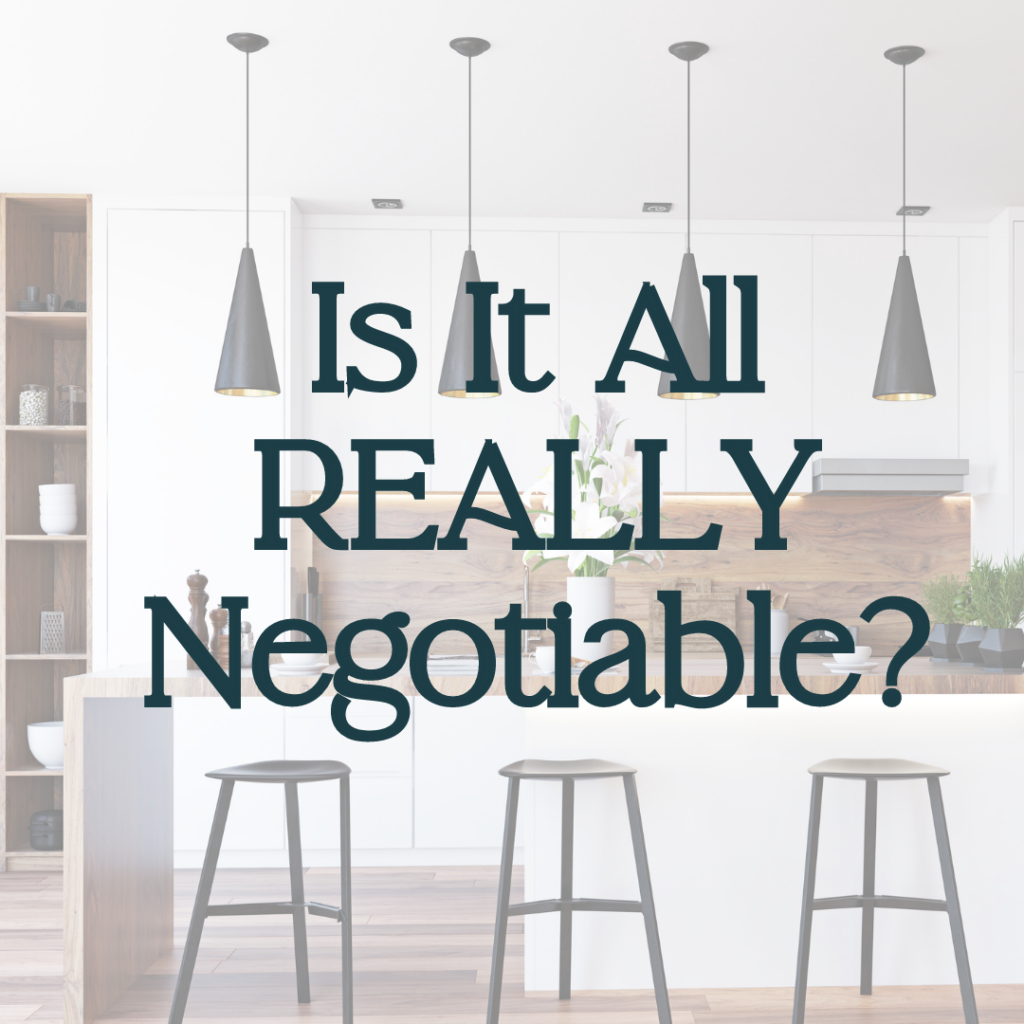One of my hard and fast rules when it comes to advice I give my buyer clients is to only look at houses you can afford. You may have trouble finding something in your price range, so it can be tempting to up that budget filter on your search to come up with more options. Maybe the price will come down or it’s overpriced to begin with?

The truth is that most of the time homes are priced pretty close to market value. There are some homes that the seller insists be listed for more, or that an agent lists for more because they promised more than it was worth to win the listing. But most of the time, the price is reasonable.
Does that mean there’s no room to negotiate? Absolutely not. It just means that the negotiation may not be on price (or only on price). Many of my clients want to make offers that are below the list price. They think that the list price is a starting point and that the house was priced high, so offering the list price means paying too much. I’ve found that in a market like now (Fall 2023), offering much less than the list price isn’t going to win you the house.
When I list a home, I always list it at the most likely sales price. I don’t start higher or with negotiations in mind. It’s the same when I advise a client who is buying a house. I’ll run the numbers and let you know if the price is appropriate. And it’s very rare, except in the crazy days of 2021, that I advise offering over the true appropriate market value of the house.
But what if you just need a little help to make the house work financially? For many buyers, the main issue is the closing costs. Whether you have 100% financing or are putting down 20% or more, the closing costs add up, and can make the cash you bring to close a little more than you may be comfortable with. That’s where asking the seller to pay some of your costs comes in.
Costs you can expect to pay may include the owner’s title policy, the mortgage title policy, survey, fees to obtain information from a homeowner’s association, fees to the title company for handling the closing, prepaid interest and taxes, and fees that may be associated with a government-backed loan like FHA, VA, or USDA.
A strategy that works well for reducing your costs at closing is asking the seller to contribute to those costs. This is an especially effective strategy when a home has been on the market for more than 30 days. For example, you can offer the full listing price, then ask the seller to pay some of your costs. It’s a less painful way for a seller to help make the deal happen.
Even with these options, I still recommend you keep your budget in mind when looking at houses. It can be easy to get excited when you can get financing approval for a higher price, but it’s more important to look at how you’ll feel about that mortgage payment after closing.
Hi, there!
I'm Leila Hays, and I'm on a mission to help you buy and sell at the same time without paying two mortgages or moving twice. If you're planning to make a move in the next year, it's not too early to plan. Click the link below to get started.
Contact
832-402-6040
9303 New Trails Dr. Ste. 165
The Woodlands, TX 77381
leila@leilahays.com
what you need to know about buying or building
Homes You Might Love
(my listings)
what you need to know about owning or selling
All Articles
schedule your free consultation